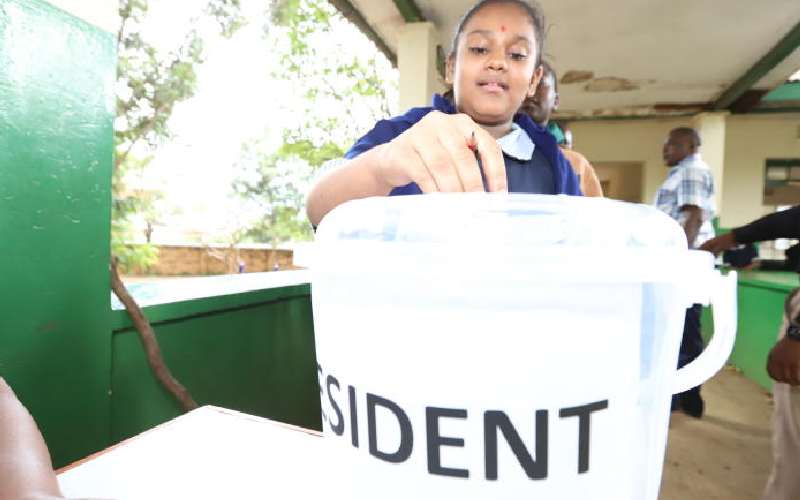×
The Standard e-Paper
Fearless, Trusted News

As is the requirement in choosing school prefects that will be leading in 2020, pupils at Xaverian Primary school in Kisumu went to the ballot. [Denish Ochieng,Standard]
On Wednesday, the world marks the International Day for Democracy. This is an important event to take stock of the state of democracy like accessing challenges confronting it as well as celebrate milestones over the years.